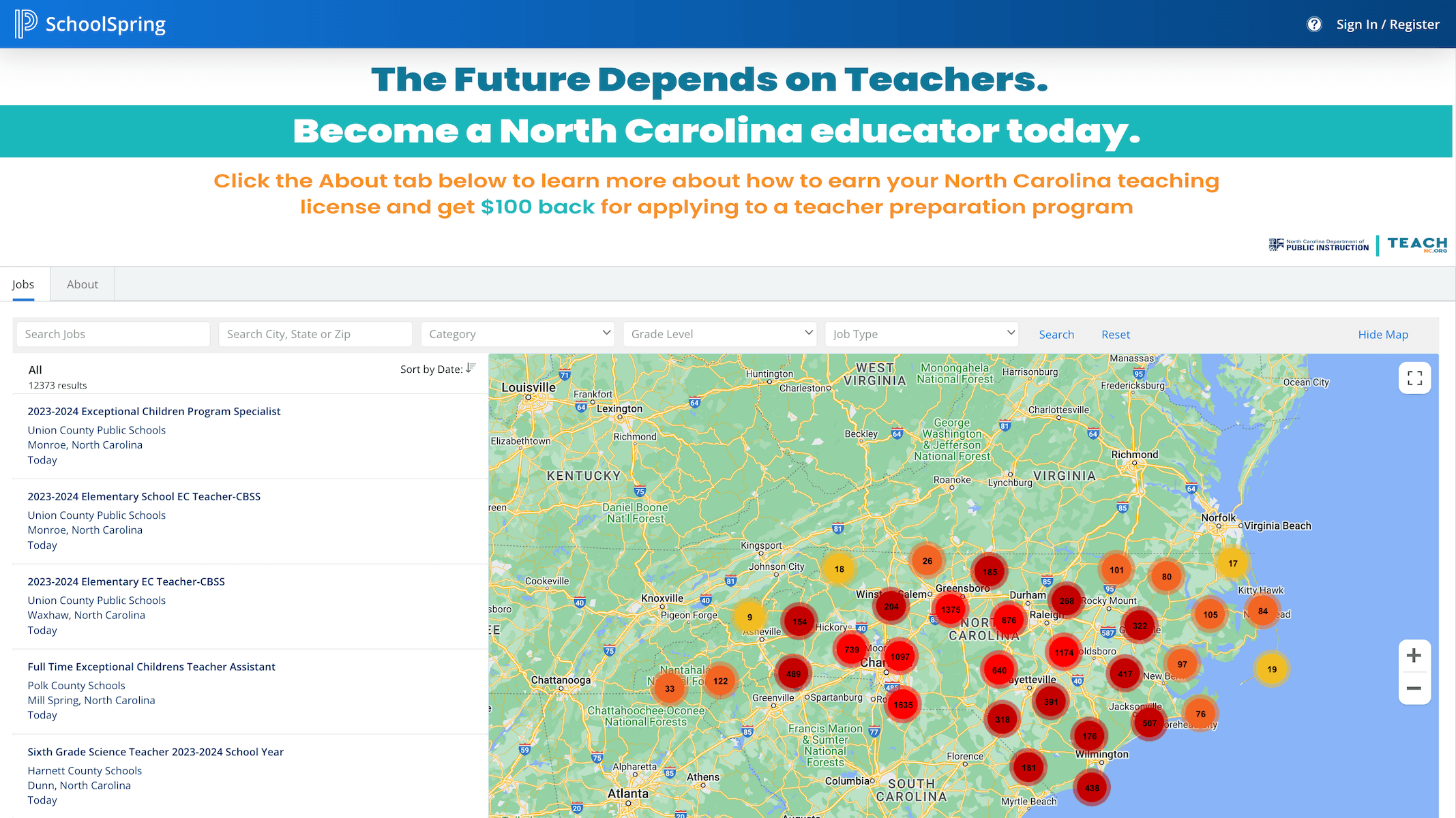How to use this job board
FAQs
Have questions about education jobs in North Carolina? We’ve got answers.
Create a Free Account
Sign up for access to everything we offer, right from your dashboard.
- Learn about your licensure options.
- Explore teacher training programs.
- Get support for teaching tests.
- Apply for financial aid.
- Chat with licensure experts via live chat, small group sessions or 1-on-1 meetings.
It’s all FREE and brought to you by the North Carolina Department of Public Instruction and our statewide partners.

